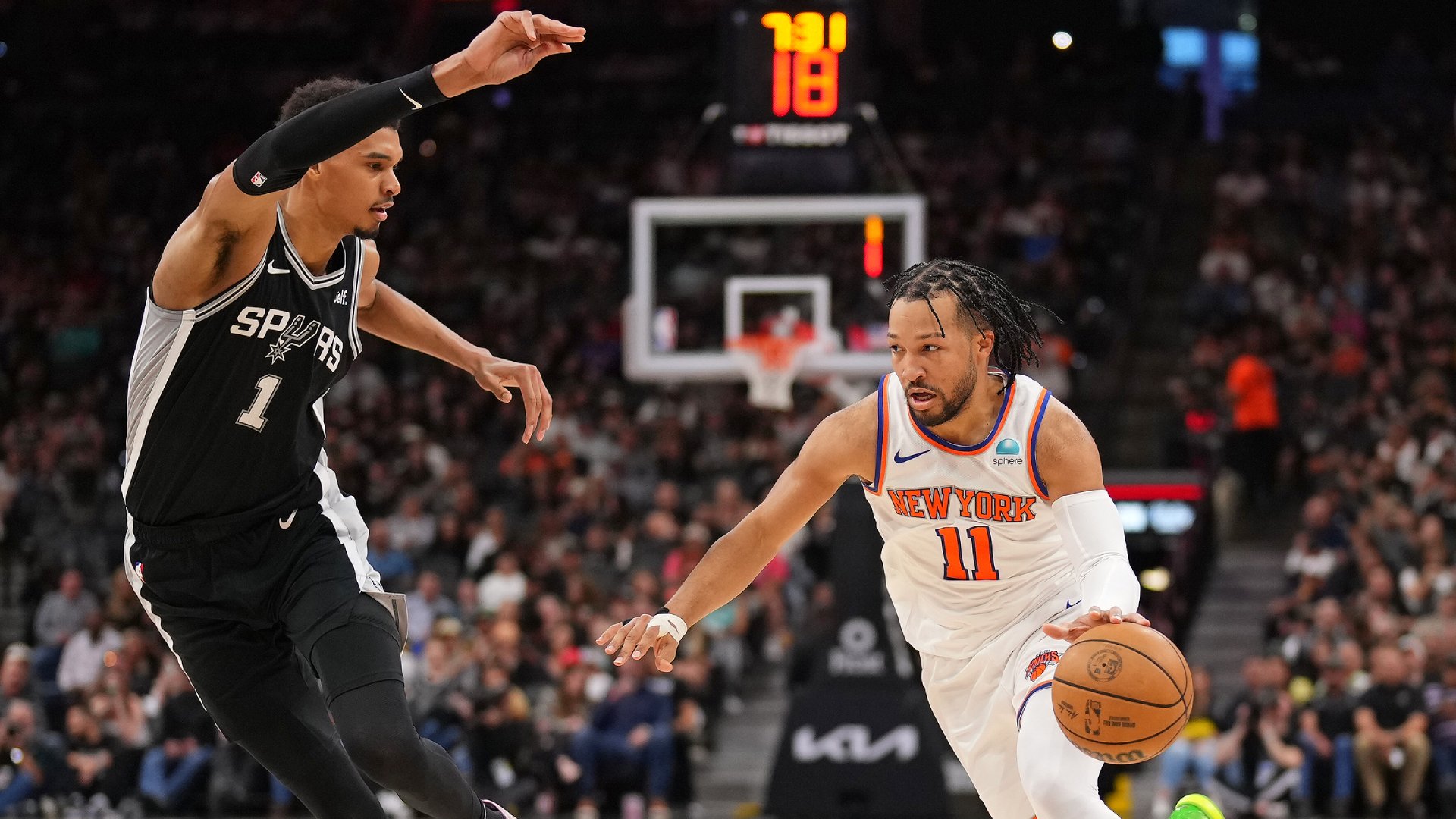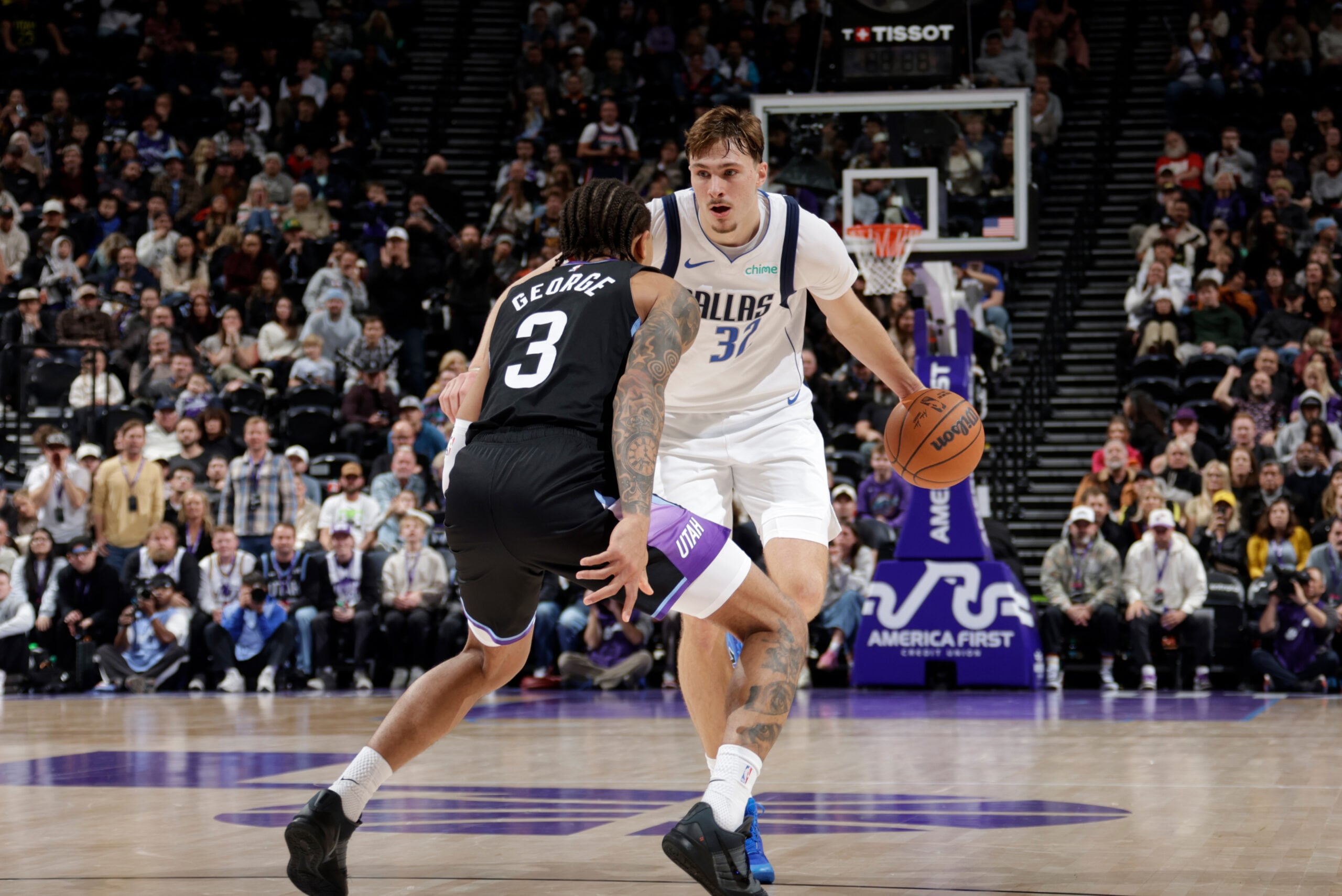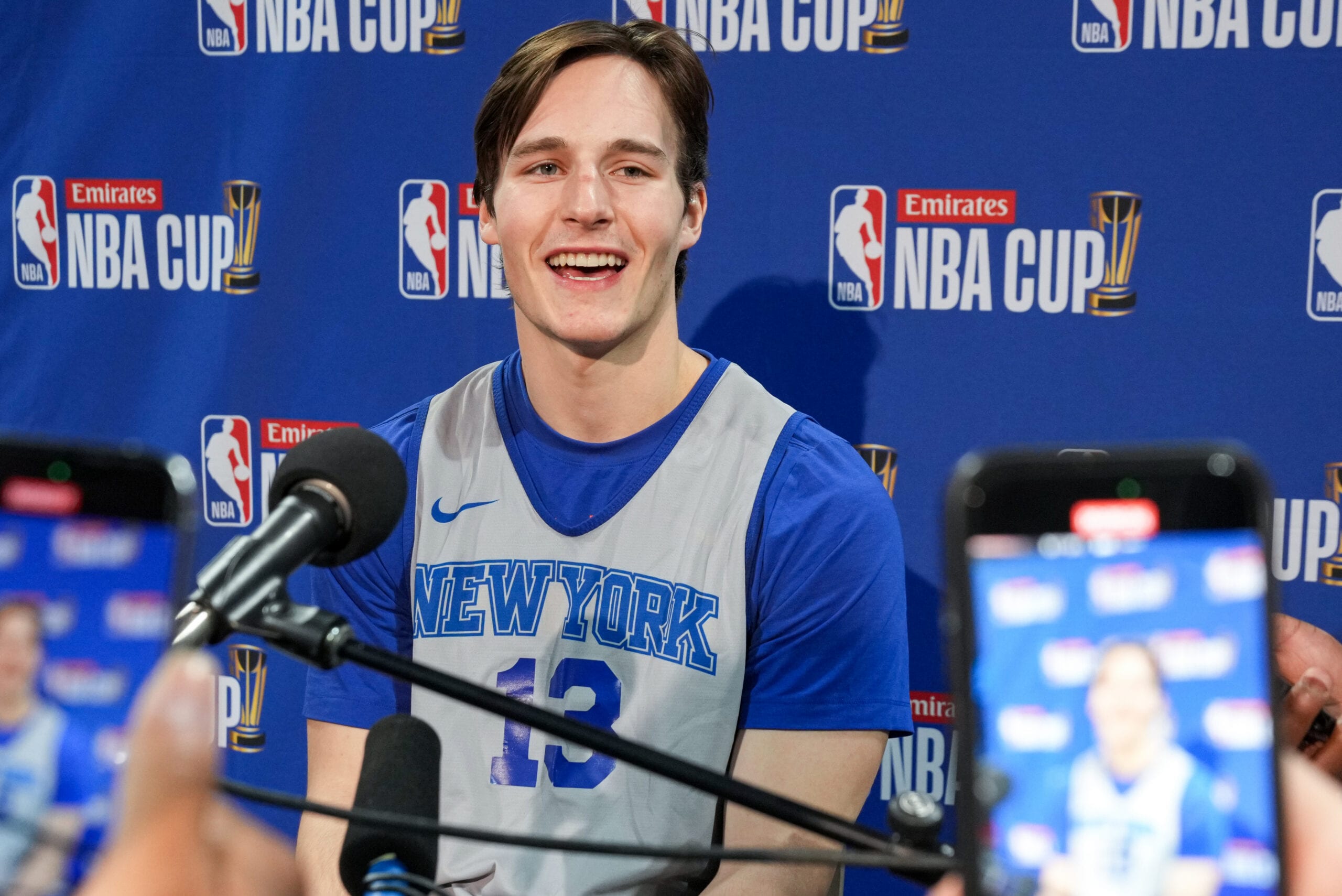
The main numbers weren’t impressive. Al Horford averaged 14.0 points and 6.8 rebounds over his first season in Boston. But the Celtics knew better.
“Al Horford averaging 15 points a game for you is like other guys averaging 27,” said Boston coach Brad Stevens.
Horford arrived last summer as the free agent with the nine-figure contract to essentially replace the beloved Kevin Garnett, who had been the biggest NBA personality in Boston since Larry Bird. That comparison was always going to be a problem. Garnett, high-strung and explosive, cast an influence far greater than the 15.7 points and 8.3 rebounds he averaged in his half-dozen seasons with the Celtics through 2012-13. Horford, quiet and self-contained, did not act out his intangibles.
And yet 6-10 Horford has helped lay out an environment that has put Boston within two games of reaching the Eastern finals for the first time since 2012, when Garnett was in charge. Indeed, it is with recent thanks to Garnett that Horford’s Celtics could find their way.
Celtics guard Avery Bradley could just as easily have been referring to Garnett when he praised Horford’s core strength.

“He’s comfortable in himself,’’ Bradley said of Horford. “I’ve always said the most comfortable guys – comfortable men – at this level are the ones that don’t really care what anyone thinks. They’re just going to work every single day, being professional and doing what’s best for their team and what’s best for their guys as individuals.’’
The Celtics out-recruited the Wizards, Rockets and others to sign Horford away from the Hawks, for whom he had appeared in four All-Star Games and won six playoff series while averaging 14.3 points and 8.9 rebounds in nine seasons. The going rate for Horford’s new max contract was $113 million over four years, and Boston was happy to pay it.
The normal response for someone in his position would have been to validate the big money with bigger individual stats. Horford, 30, has gone the other way.
“The biggest thing was Danny Ainge,” said Horford of the Celtics president. “Right before I signed here one of the things he said to me was, ‘I want you to be who you are and the player that you are – the competitor, the winner. Don’t worry about the numbers. Just play hard and help us win.’ He was very clear from the beginning, and that really took the pressure off me. Obviously, there were all of these expectations – the big contract – but he and coach Stevens put me at peace and allowed me to play my game.’’
Horford was vulnerable to criticisms that he was providing role-player stats in exchange for his max salary. In fact, he had never averaged more than 18.6 points in his nine years with Atlanta, and only for one season (2012-13) had he generated 10 rebounds per game.
“You don’t take a guy that’s averaging 14 points a game and expect him to average 25,’’ Ainge said. “You don’t take a .270, 20-home-run guy and expect that he’s going to hit .330 and 40 home runs. We knew what Al was, and I think he’s even been better than what we thought.’’
The bottom line from Stevens and Ainge that winning comes first has created an encouraging cocoon around the Celtics. Instead of being distracted by outside demands that he score like a star, Horford has been intent on helping his younger teammates find their way. He averaged 5.0 assists per game during the regular season – more than a 40% gain over his previous best – as the Celtics maxed out their talent to win the No. 1 seed in the East years ahead of any reasonable schedule.
Horford’s impact is measured by his across-the-board versatility. In the final week of the regular season, when the Celtics were taking stock of the most important free agent they had ever signed, they discovered that Horford was assisting 24% of Boston’s baskets while he was on the floor, that he ranked among four players in the NBA to be averaging at least five assists and fewer than 1.7 turnovers (the other three being point guards), and that he was leading all big men in passes that led to free throws. The two NBA players to amass at least 14 points, six rebounds, five assists and 1.3 blocks this season were Horford and Giannis Antetokounmpo – numbers previously generated by only Kareem Abdul-Jabbar, Bill Walton, Alex English, Chris Webber, Lamar Odom and, of course, Garnett.
“It’s not a coincidence that Avery Bradley, Isaiah Thomas and Jae Crowder had the best years of their careers,’’ Ainge said. “That is not a coincidence. Al Horford had a lot to do with it.’’
On the eve of the playoffs, as the young Celtics were preparing to win their first postseason series in five years in fulfillment of the potential that had attracted Horford to Boston, the narrative changed in the worst way. Instead of focusing on their opener against the Bulls, all that mattered was the hard-demoralizing news from the far side of the country, where Thomas and his younger sister Chyna had been born and raised.
Tragedy brings uncertainty
“I felt like there was a cloud over our team,’’ Ainge said. “And I knew that it would be a struggle for Isaiah. He could hardly stop crying for two days straight.’’
In many cases fans have trouble relating to the point of view of professional athletes. In the case of Chyna Thomas’s untimely death in a one-car accident in Federal Way, Wash., at the age of 22, the sympathy for Thomas and his teammates should have been universal. In all walks of life, when a loved one is lost, the lights are dimmed and voices are lowered in empathy for those in mourning. It happens in every office, every school, every household.
And so, it made perfect sense that the usual enthusiasm for the playoffs was overwhelmed by the melancholy that overtook the Celtics in their practice facility, in their locker room, and on their home court. It was impossible for them to be emotionally fired-up for Games 1 and 2 against Chicago while they were grieving with Thomas, their 28-year-old All-Star. The weakness of their performances revealed a profound strength in their relationships, and a sense of caring that can only help their development for the long term.
“When you go through a crisis like that – whether you’re the coach or a teammate – you don’t really know how to act,” Ainge said. “Nobody knows what to say. Nothing you say can comfort someone that’s in that state of mind. And this was a very, very close person to Isaiah. His sister and him were so close.’’
Instead of withdrawing into privacy, as anyone normally would, Thomas found himself having to absorb his loss before an audience in the millions. He did not take a leave of absence. He did not go home from work. And so, his teammates and coaches became an extension of his family. They were all in mourning together.
“I didn’t know how to handle it. I had never experienced anything like that. So, it was very quiet around here. Nobody wanted to talk. Nobody wanted to address anything.”
Al Horford on the team supporting Isaiah Thomas, who was grieving the death of his younger sister
“Everything he’s doing is in public,’’ Ainge said. “TV cameras are watching him cry. Even to this day, weeks later, it is still so public. So, you don’t really get this time alone to mourn the loss of a loved one. You’ve got to be in front of cameras.
“Isaiah handled himself unbelievably, in my opinion. After Game 2, I was talking with him before he went on his flight out to Washington. He was wondering if he should quit. All of these kinds of things were going through him because he was in so much pain.’’
Criticism in Boston was growing after Boston trailed 0-2 to the No. 8 Bulls – as if only the first loss was understandable, as if the three days should have been enough time for the Celtics to set aside life-and-death in order to focus on the ball and the basket. Of course, it was all backward. The critics were holding the Celtics to a standard that they would never apply to themselves. But Ainge and Stevens recognized and accepted why their team was losing – the Bulls were playing freely with joy, while the Celtics were trying to make sense of a tragedy that made no sense.
“You’ve got to give Chicago credit,’’ Ainge said. “But we were playing tight. Everyone wanted to win, but there was not a lot of emotion being shown. Nobody knew if you could laugh, if you could joke. You’re just trying to keep your distance, and how do you do that on a basketball court with millions of people watching you? How do you interact? It was an educational experience for everybody to go through that.’’
After the Game 2 loss, Boston’s longtime head athletic trainer Ed Lacerte received an impassioned voice mail from Garnett. Lacerte shared the recording with Ainge and Bradley, who had grown up playing AAU with Thomas.
“Eddie didn’t know if he should give it to Isaiah, because there were some personal things in there about Chyna,’’ Ainge said. “But I had Isaiah come in to listen to the message, because I think KG was sending it to Isaiah. And it was an inspirational message to Isaiah. Isaiah was very taken back by that and he immediately said, ‘I want everybody to hear this. I want the whole team to listen to this message from KG.’’’
Thomas played the voice mail from Garnett for the entire locker room to hear before Game 3 in Chicago.
“He took it in the spirit of how hard this is, losing your sister, but you have got to play for her, and the whole team has to play for her,’’ said Ainge. “It was a good message at a time that Isaiah was receptive to it. Maybe he would not have been receptive for Game 1 or Game 2. I think that was Isaiah’s way of saying to his teammates, ‘Come on you guys,’ but without him having to say it – it was someone else that all the players respect saying, ‘You’ve got to just play. You’ve got to play to win and you’ve got to play together and play for Chyna.’ And I think it was the turning point in that series.’’
Garnett’s fiery message enabled the Celtics to change their point of view. They appear to have shifted from mourning the death of Chyna Thomas to celebrating her life.
There is still much deference and respect for Thomas, and for the sadness that so often gets the best of him. But there is also a sense of unity and common purpose that has transcended the six games in a row that they have won – four against Chicago, and the first two in Boston against the Wizards.
“I was inspired by Isaiah and how he handled everything,’’ Ainge said. “Knowing what I know now of his closeness with Chyna, their upbringing and how much they were together, it was pretty inspirational for him to play the first game and the second game. And it was inspirational to see the guys who wanted to help Isaiah through it. At first it almost added pressure. But then once they got down 0-2, it was like our backs were to the wall and they came together. And that was impressive because Chicago is a good team. It’s not like we are this amazing team that’s automatically going to beat Chicago.
“I also felt after Game 2 that Isaiah was different,’’ Ainge went on. “A few days had gone by, and it was like, ‘I really want to be more inspirational and overcome this challenge. As hard as it’s going to be, I don’t want to be a burden.’ So, I felt like the team and him all were a little bit different when we got to Chicago. Isaiah came back into a more normal environment.’’
The 5-9 Thomas has, in turn, responded with some of his best games of the season: 33 points each in Game 4 at Chicago and then again in the opening comeback win against Wizards, to be followed by 53 points (29 in the fourth quarter and overtime) while Boston seized a 2-0 series lead over Washington on what would have been his sister’s 23rd birthday.
“I love Isaiah,’’ Ainge said. “He’s a fun guy with an infectious smile and great passion, and he loves to play basketball. But even if he had not dealt with this as admirably as he has, I’d still love him the same. The best thing that I see from this is that Avery and Jae Crowder and Al Horford and Amir Johnson and Jaylen Brown – they’ve all learned from Isaiah on how they should look to handle these kinds of things in life. They should look at it as, man, he handled that really well. Inevitably we are all going to have to deal with issues and challenges and trials in our life, and that is a good model that Isaiah really set for everybody that was a witness.’’
Horford could not agree more. He had been recruited by the Celtics to be their veteran leader, and yet he has experienced a lesson that will inspire him for the rest of his life.
“We didn’t know how to handle it,’’ Horford said. “I didn’t know how to handle it. I had never experienced anything like that. So, it was very quiet around here. Nobody wanted to talk. Nobody wanted to address anything. It was just all very awkward. But then seeing Isaiah a little more upbeat – that was important. It makes us feel better now that we see that he is getting back to being himself again, and we feel like we are starting to get it together as a group.’’
A quiet role model
It’s as if Horford has emerged as a steadying avatar for Stevens in the same way that Garnett used to reflect the blazing passion of his coach Doc Rivers, when they were together in Boston not so long ago.
“Ultimately what he does for your team – from the contagious unselfishness – is to give you a winning mindset,’’ said Stevens of Horford. “Wins are all that matters, and it becomes bigger than the stat sheet. That’s the way he’s been for a long time, which is one of the reasons why we wanted him here so bad. It wasn’t just because of what he can do statistically. It’s because he gets it, and it’s good to have a guy like that around all these young guys.’’
Consider the journey of this young team. The best young Celtics have improved in no small part because Horford – widely talented and yet selfless – helped to create the winning environment in which they expressed and fulfilled themselves. And now, thanks to the recent emotional assist of his predecessor Garnett, Horford has been raising his standard all the more in the postseason.
After not knowing how to react to the death of Chyna Thomas, Horford has responded with a heightened level of efficiency that has laid the foundation for Thomas to close out with his prolific scoring. During the Celtics’ six-game winning streak in the playoffs, Horford was averaging only 10.5 shots – 1.3 fewer than during the regular season – and yet he was averaging 17.0 points while shooting 66.7%. In those games, he was also shoring up Boston’s rebounding deficiency with 9.0 boards while creating 6.5 assists (and just 1.7 turnovers). He was pushing the ball upcourt in transition and anchoring the defense of big and small lineups alike. Through eight playoff games overall he was converting 47.4% from the 3-point line.
Instead of focusing on scoring and/or rebounding to the exclusion of all else, Horford was playing a winning hand in every phase of the biggest games. He was making more of his diverse range of talents than ever.
“He’s one of the best at his position, if not the best,’’ said Wizards coach Scott Brooks of Horford’s passing as a big man. “If you are looking at the numbers, you’re probably going to be looking at the wrong things. He makes winning basketball plays. He does all the intangibles that it takes to have a winning team, and he exemplifies that night in and night out. If he really wanted to be a 20-point scorer, I’m sure he can. But he cares about winning only.’’
By Horford’s example, the younger Celtics have seen that those winning plays are far more valuable than the accumulation of individual stats. Horford very easily could have led them down the wrong path this season by exploiting the power of his contract to demand extra touches and a higher individual scoring average – in which case the Celtics never could have bonded as they have over the last fortnight. Because they never would have learned to trust in one another.
“It’s certainly not like 2008,’’ said Ainge of the postseason when Garnett’s Celtics won the championship. “Or 2009, when we lost KG (to injury) but we started out 27-2. Those were very, very special teams. This team is not them. But it has been a very rewarding year. It’s just fun for some of these guys to have the kind of success and attention that they’ve never had.’’
Horford, like Garnett before him, takes pride in the attention that has been earned by his teammates, even if their success has resulted in complaints about him. From the depths of their recent misery, win or lose this series against the Wizards – who ended Boston’s winning streak with a 116-89 win Thursday in Game 3 – the Celtics have established an identity that may draw them together long after their careers have ended.
“I do believe, based on the things that we have been able to accomplish and how we are playing now, it has to be one of my better seasons,’’ Horford said. “But the year isn’t over yet, and I really don’t want it to stop.’’
Ian Thomsen has covered the NBA since 2000. You can e-mail him here, find his archive here or follow him on Twitter.
The views on this page do not necessarily reflect the views of the NBA, its clubs or Turner Broadcasting.








